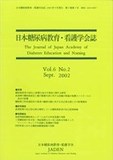Japanese
English
- 有料閲覧
- Abstract 文献概要
- 参考文献 Reference
- サイト内被引用 Cited by
本研究は,糖尿病患者のquality of life(QOL)に影響を及ぼす要因を明らかにし,食事療法に対するストレス認知と対処能力との関連を検討することを目的に,40歳以上の糖尿病患者(分析対象124名)を対象に質問紙調査を行った.分析枠組みは,QOL「主観的幸福感」を従属変数とし,①個人特性,②ストレス対処能力である“sense of coherence”(SOC),③ストレス認知のうち「肯定的認知」(自己効力感),「否定的認知」(負担感)を独立変数に設定し,重回帰分析およびパス解析を行った.その結果,QOLには負担感の影響が最も強く,自己効力感は負担感を介して間接的な影響要因となった.SOCはストレス認知とQOLへの影響要因となった.糖尿病患者のQOLには,負担感を軽減させる必要があり,その方法として患者の自己効力感を高める看護介入の必要性が示唆された.
The purpose of this study was to clarify the factors influencing the quality of life (QOL) in patients with diabetes mellitus and to examine the relationship stress-cognition of diet and the ability to cope with stress. The subjects were 124 patients with diabetes mellitus aged 40 years or over. Data was collected using a questionnaire including QOL, personal characteristics, sense of coherence (SOC), self-efficacy and the burden on diet. Multiple regression analysis and path analysis were used. The results demonstrated that the strongest factor influencing QOL was burden, and self-efficacy was an indirect factor via burden. SOC was a factor that influenced stress-cognition and QOL. These results suggest that in order to increase patients' QOL, it is necessary to reduce the patients' burden and to increase the patients' self-efficacy.
Copyright © 2002, Japan Academy of Diabetes Education and Nursing. All rights reserved.


